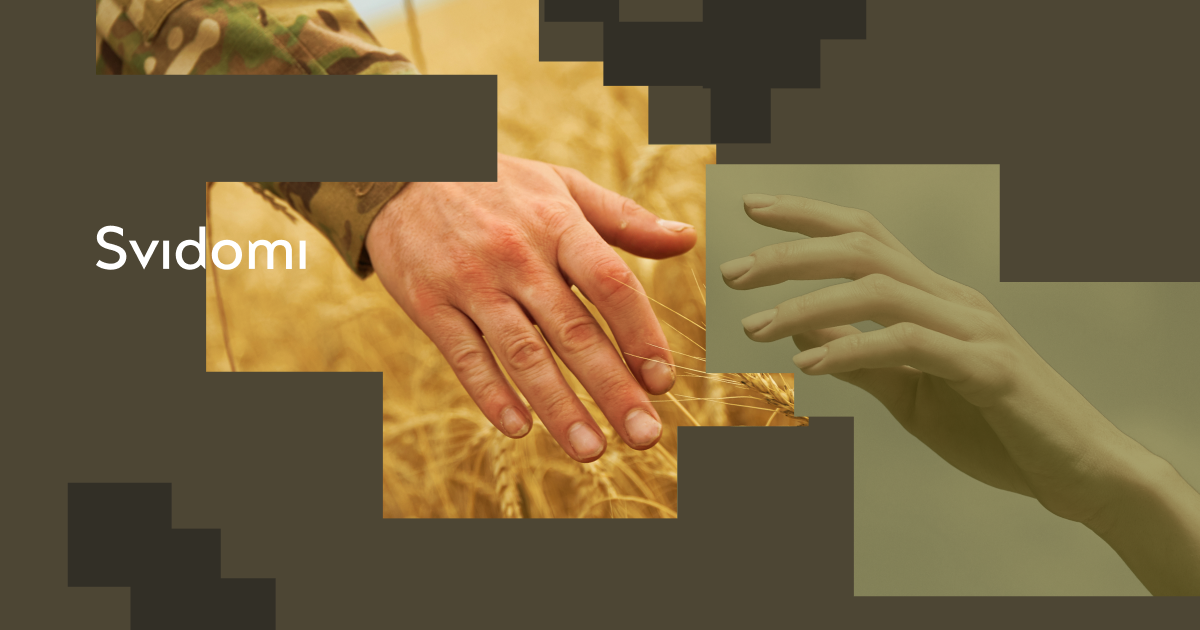Military guilt. How to avoid harm and help?

War survivor's guilt is a condition where a person feels guilty for staying alive while others died. This feeling exists among both civilians and military personnel.
Read how civilians can communicate with military personnel who feel guilty and what to do to help rather than harm.
Survivor's feelings
Survivor's guilt is a mental state of a person accompanied by an understanding of the preservation of their own life and a sense of guilt because others in the same circumstances and conditions could not survive, explains psychologist Ihor Ozerskyi. According to him, the feeling of being a survivor is psychologically identical to the feeling of guilt.
"The most common source of guilt among military personnel is the 'survivor syndrome'. The deaths of comrades-in-arms, losses, hopeless battles when you could not be there," says Ivanna Kovalchuk, a psychologist at the Veteran Hub Support Line.

She explains that the militaries know it is a war: "However, these thoughts do not help alleviate the pain. And when you are in such a state and faced with a society that expresses a negative attitude towards you, the guilt only worsens."
"You feel guilty when another person's life or health depended on your actions. If someone spent little time on tactical medicine training, and then a fellow soldier was injured or killed, they will feel guilty about it. The person will feel guilty that they did not try to save the other person. However, even when you do everything you can, the feeling of guilt will be with you anyway," says Ivan Hroza, a soldier with the Carpathian Sich combat group, 206th Battalion, Territorial Reserve Army.
How to avoid harm?
There is no need to be afraid of guilt among the military because it is a natural defence mechanism that needs to be communicated, explains Tetiana Sirenko, deputy director of the Lisova Polyana Centre for Mental Health and Rehabilitation of the Ministry of Health of Ukraine, a psychotherapist.
Ivan Hroza notes that society should not criticise the actions and deeds of the military, especially when they are not competent: "If some people have watched a YouTube video and consider themselves strong experts, they are not."
"If a soldier says he feels guilty, you can talk to him about it. You can tell them that there are global things that have influenced certain circumstances. Work through the fact that many people are involved in some situations, not just one. To expand the picture that more than one person was involved," says Tetiana Sirenko.
We cannot allow phrases:
- How many of your counterparts died in the war?
- How did you manage to survive in such hell?
- Did you fully avenge your mates?
- Have you fulfilled your duty to the end?
- Do you want to return to the front?
- What are you going to do next?
- Will you tell me about the war and death?
- I understand how painful it is for you to remember now...
- I wish I had been there.
- Never mind, it'll soon pass.
"Never ask about fallen combatants. How, when and where. When the time comes, the soldiers themselves will tell you about it if it is important to them," says Petro Konoplia, a combat medic with the 35th separate Ostrohradskyi Marine Brigade.

How can civilians help?
The best thing a civilian can do when faced with this is to listen. Civilians should follow the rule of thumb: fewer questions, more answers.
" Let them speak, especially if they do. If we avoid this topic, we create a certain tension and awkwardness," says Sirenko.
Kovalchuk explains you shouldn't play the "I understand" game with the military. According to Konoplia, it is better not to ask questions if you are not ready to hear the answers. In his opinion, if a person is ready, they will share: "If you ask questions, you provoke memories, and they are not always pleasant. When you ask whether they have killed, what good will it do you? It won't tell you anything, but it will bring back memories and additional trauma to the person."
Psychologist Sirenko says that you can say: "I appreciate that you are here now, and I want to do something to make you feel better. What can I do for you that would help you?"
Kovalchuk explains that if soldiers share stories of guilt, you need to listen, but it is important to remember that any inappropriate phrase can be harmful.
"You shouldn't say 'he would have died anyway', 'it was a hopeless situation', 'you couldn't have done anything there'. In the eyes of a bereaved person, your words can be perceived as devaluing the death," she says.
To help the military overcome the feeling of guilt, society must learn to be grateful for the country's defence and protection.


